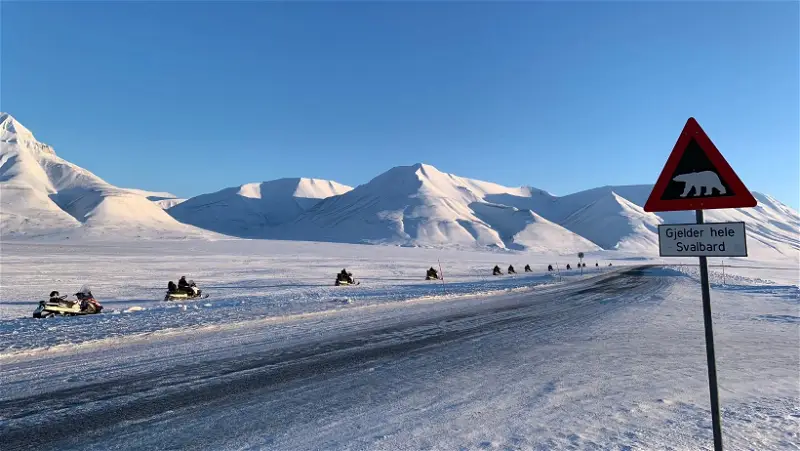Breaking News
REVEALED: Svalbard, town where it’s ‘illegal to die’, cats are banned and guns are mandatory
If you do want to take a trip to Longyearbyen and Svalbard, you should note that while its airport is served by multiple airlines, you cannot fly there directly from the UK – you’ll need to take a flight to either Oslo or Tromso in Norway, and pick up a flight to the island.

European locations rarely get more remote than Svalbard, an archipelago situated around 650 miles from the North Pole and 500 miles from the Norwegian mainland.
A popular tourist destination, the island is also home to the world’s northernmost town – Longyearbyen. You can move there freely with no visa required, but there’s some pretty unique laws you’ll need to abide by if you do.
Although the island is located hundreds of miles from Norway, it has been under Norwegian rule since 1920.
Visitors to Svalbard can expect to be treated to a range of attractions from dog-sledding to exploring the stunning ice-caves, all set in some pretty chilly weather – around 60% of the island is covered by glaciers and the temperature is rarely above freezing.
Only a few thousand people live on the island, mainly in Longyearbyen, but they share the space with one of the world’s largest, unspoiled wilderness areas – home to polar bears, reindeer, caribou and a huge variety of birds including Arctic terns and puffins.
Although wildlife roams freely here, polar bears largely steer clear of the settlements.
Anyone planning to pay a visit should know that the island has some unusual laws and customs. For example, cat lovers may want to steer clear as the animals are banned from the island in a bid to protect its bird life.
Visitors might also learn of the bizarre claim that it’s illegal to die in Longyearbyen.
This is not strictly true – but those who do pass away are not allowed to be buried there as their bodies will never decompose due to the climate and freezing conditions.
The legend goes that while a handful of Norwegian miners were buried in Longyearbyen in 1918, their bodies were so well preserved when they were dug up 70 years later that their systems still contained traces of a flu virus that killed them.
However, those living in the town who are seriously ill are often sent to the Norwegian mainland for treatment due to the limited medical facilities on the island. The same goes for pregnant women.
There is no maternity ward at Longyearbyen’s main hospital, meaning that those who are expecting have to travel to Norway at least a month before their due date.
While it may be on your bucket list to visit, did you know you could also live in Longyearbyen if you wanted to?
Although it is part of Norway, one condition of the Treaty of Svalbard – which came into effect in 1925 – is that the island is a visa-free zone, meaning anybody from any part of the world can take up residence.
However, living there for an extended period does not give you any specific rights to Norwegian citizenship.
Its far north location on the planet also means that there is no sunrise for four months of the year from October until February, while the sun never sets between April and August.
Longyearbyen is also one of the best places in the world to see the Northern Lights – which in the winter months can also be visible in the daytime.
If you do want to take a trip to Longyearbyen and Svalbard, you should note that while its airport is served by multiple airlines, you cannot fly there directly from the UK – you’ll need to take a flight to either Oslo or Tromso in Norway, and pick up a flight to the island.
SAS and Norwegian are among the airlines which fly to Longyearbyen from both cities.










